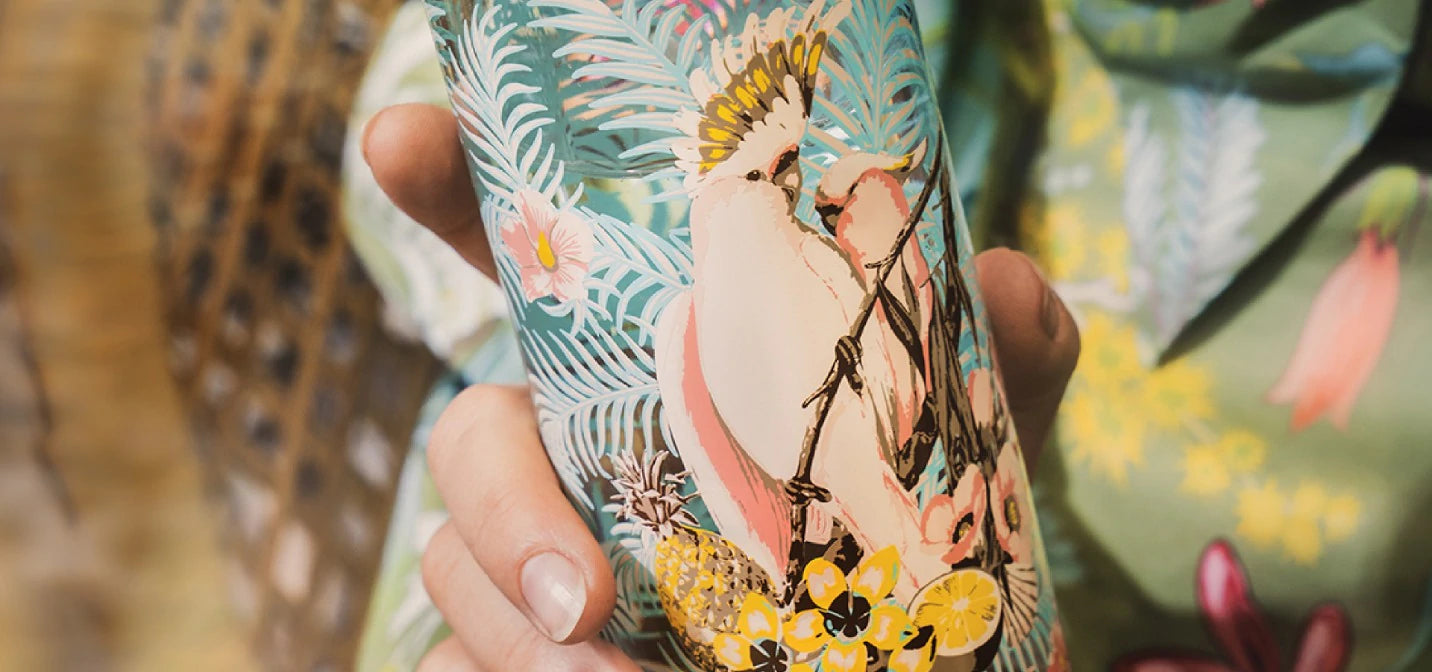Celebrating the women in our lives
Every year, International Women’s Week encourages us to reflect on the incredible women in our lives as well as the ongoing fight for gender equality.
At waterdrop®, we are working toward a world where gender equality is the norm. Although we see progress being made around the globe, we are not there yet. While more women hold positions of leadership and are involved in male-dominated industries than ever, the disparity in equal pay and opportunity still needs a lot of work.
A person’s ability to perform is not dependent on their gender or self-identification. It is dependent on their willingness to put in the work, to learn, and their career and educational experience. Their gender or how they identify must not factor into the equation.
We are constantly working towards forging positive visibility for women in the workplace and challenging gender bias and stereotypes.
To become more informed, we caught up with 9 W.O.W (women of waterdrop®) and asked them some questions.
The current situation
- Women hold only 27.1% of leadership positions globally
- Approx. 8.2% of Fortune 500 CEO positions are held by women
- For every 100 men promoted to management positions, only 86 women are promoted to the same status
- 61% of women think motherhood disrupts their opportunities to progress at work
- 42% of women say they have been discriminated against at work because of their gender
The workplace
Although we know that gender biases exist everywhere, it is important that we discuss the impact that they have on women at work.
From being passed over for promotions, to being expected to do the household duties around the office, women experience a different reality at work than men do.
Jan Tungarat (Social Media Community Manager, US/UK) remembers a previous job in which she was “in charge of a project and had to prepare and coordinate everything from its inception to execution” but her “clients kept directing their questions to my supervisor (a white man)” to whom she would then provide the answers to. This lack of respect is just one example of having to work while being undermined on a daily basis, by external or internal stakeholders. Automatically assuming that the closest male is in charge of the situation is just one of the behaviors that need to change.
Nadja Renz (Supply Chain and Logistics Teamlead) spoke to us about workplace issues she has experienced in the past:
“I have experienced double standards on how men and women are perceived in specific situations in my personal and professional life. This resulted in self-doubts and extra work for me: I have to double, triple check my work and its quality, question my own value and intellect, be careful on how I phrase or handle things to not be perceived the wrong way, and be prepared in case I have to defend myself for whatever reason... There is no way to overcome them by myself as they are deeply anchored in our society.”
Nadja’s experience is shared by many women in many industries. The pressure to constantly perform while taking on more work to prove one’s self isn’t conducive to a happy and productive work environment. For all employees to thrive and be the best version of themselves, equality is needed.
When asked about her time in the workforce, Shirley Regnault (Global PR and Communications Manager) said that she “used to face many challenges because of my gender. When you are a young woman, it’s always hard to gain respect. You need to work harder, to fight more, and to prove that you can achieve more.”
Unprovoked advances are another aspect of the workplace that plague women. Aracely Villalobos (US Customer Service Market Leader) spoke of her experience as a young Mexican woman:
“In some of my jobs, I have had to be very careful with how I dress and portray myself because it was very easy for the people around me to see me as nothing but the “exotic” girl, just because of where I come from. Both coworkers and customers have felt the freedom to hit on me in the middle of my workday. I have been followed and sent threatening messages by colleagues after I decline their advances, I wonder if many men have had the same experience.”
Not only is there the expectation for high performance at work, but there is also the societal pressure to look a certain way. Women face discrimination based on factors such as weight, appearance, clothing, social class, economic and cultural backgrounds, amongst others. There is too much discussion regarding how a woman looks, particularly in regard to work. How she looks and dresses does not represent what she is capable of. There needs to be a fundamental shift in the way women are perceived and treated in the workplace and it is on all of us to make sure that happens.

Aracely Villalobos (US Customer Service Market Leader)
Navigating male-dominated industries
As we delve deeper into the tech world, it becomes more evident that it is an institutionally male-dominated industry that would benefit from the inclusion of more women.
Dr. Stefanie Lukner (Senior Strategy Manager) has been overseeing our recent tech innovations, the LUCY® Smart Cap and waterdrop® Hydration App while getting her Doctorate in Economics and Social Sciences. Although she is more qualified than most, she still experiences gender biases in the tech world:
“Take a very broad look at potential career paths and have enough confidence to consider areas that don’t seem completely straightforward and linear.”
Like Stefanie, Alexandra Marcinova (Product Manager for ERP and Integrations), has had to forge a path for herself in the tech industry. When asked what advice she would give to women in or looking for a job in tech, she replied with the well-known quote “motivation is the backbone of success” and that equal opportunity and treatment should be applied to “every human being, no matter the gender or position.”

Dr. Stefanie Lukner (Senior Strategy Manager)
What does equality look like and how can we achieve it?
It is simple enough to discuss these issues at length, but without action, there will be no change. When asked her opinion on how we can achieve equality in the workplace, Jan knows exactly what is needed:
“Education, education, education. We need to talk openly about inequalities in order to tackle them. Especially, in a work environment, workshops or seminars can be held to discuss these issues. Those who don’t experience them on a daily basis might be oblivious to what’s going on.”
Ignorance is no longer an acceptable excuse—educating one's self and others are two of the best ways to achieve equality in the workplace. If you want to have a positive impact on the lives of those around you, get to know them by asking questions. Empathy can go a very long way.
By engaging with the women around you, you can glean insights from their experiences. For example, Ilgin Özgan (Social Content Team Lead) said that, to her,
“equality means recognizing and cherishing diversity. It means fairness towards all of us, regardless of our differences. Equality at work means that we all feel included and safe at all times. It also means that we all have the same opportunities no matter what our differences are.”
One of the biggest challenges a woman can face at the workplace is being or becoming a mother. As Shirley puts it, “a woman’s career should not be slowed down because they are giving birth.” This biological process does not change the experience and abilities women have at work and should not affect their career trajectory. On the flip side, Shirley also believes that “men should have the same rights when it comes to family life.” That, in a nutshell, is equality.

Ilgin Özgan (Social Content Team Lead)
Influences
We are influenced by everything and everyone around us. This is why it is so crucial that everyone is on the same page regarding gender equality. All it takes is one uninformed or biased person to upset and change the feeling of the workplace. For those who already recognize the value and importance of gender equality, it is important that we stand up for it and talk about it openly so that we may set good examples for others.
When asked who inspires her the most, Jan stated that it’s her mother.
“She comes from a small town in Northeast Thailand, where her mother had a small food stall. They didn’t have a lot of money and were living in a tiny apartment with 8 people. Lucky for her, she found out at quite a young age that she’s passionate about teaching. She worked hard to get herself through school and got herself a teaching degree, specializing in teaching English as a second language.
During the Vietnam war, a lot of refugees fled to Thailand. She taught English at a refugee camp in a town a little outside Bangkok. Then she got a teaching assistant job at an International School. When a position of a Thai teacher became available at the school, they were recruiting externally. My mom barged into the headmaster’s office and demanded an interview. She got the job. With that, she was able to enroll her children in the school without tuition fees. This was one of the best international schools in Thailand. This is where I got my language skills and education—from her hard work.
As a single mom, she would wake up at 5.30 a.m. to prepare breakfast for us, get ready and then drive all of us to school. She would work from 7.30 a.m. until 8 p.m. on most days. During exam periods, she would stay as late as 1 - 2 a.m. She worked hard and achieved so much. She’s an amazing mom and the ultimate career woman—nothing short of a superwoman in my eyes. This is who I aspire to be.”
As did Ilgin, who listed her mother as her main influence:
“She has shown me how it is possible to achieve anything in life as long as I get up every single day with a goal in mind, work hard and go back to bed with gratitude, no matter what.”
Nadja spoke to us about her influences: Michelle Obama, Lisa Bilyeu, Emma Watson, and Malala Yousafzai. She explained that they inspired and motivated her “to take a leap of faith and put myself out there, own my value and take risks, but also to stand up for myself, to overcome self-doubts, obstacles, and stereotypes.”
Leading by example is one of the most effective ways to perpetuate an idea, and for Aracely, she saw that very strongly in Professor Wangaari Maathai:
“She was the very first African woman to win the Nobel Prize for Peace, back in 2004. She founded a grassroots organization called the Green Belt Movement in rural Kenya during the seventies… I always loved how she managed to understand and portray how women are a huge pillar in every single aspect of society. I truly believe this concept of mutual benefit is extremely important and it teaches us how by empowering the community through its women and girls, the whole ecosystem grows and develops with them. It doesn’t matter who we are, we can all contribute with a little seedling for present and future generations.”
As waterdrop® expands globally, we rely on the intellect and abilities of capable team members to see that it all goes smoothly. One such person is Agueda Trujillo (Business Development Manager). Currently located in Miami and contributing to our expansion into the US, Agueda has had a lot of weight on her shoulders. When asked about her influences, she replied:
“So far my career has been full of powerful, smart, and confident women who - in one way or another - have shaped, and continue to shape my view of what it means to be a great professional whilst becoming the best version of myself outside of work, each of them teaching me something different.”

Ilgin Özgan (Social Content Team Lead) and Caroline Nguyen (Junior Influencer Marketing Manager)
Working at waterdrop®
Our team is currently made up of women and this is for no other reason than that our team members are well-suited to the roles and exhibit incredible work ethic and abilities. We work hard to foster an environment that is comfortable and welcoming to all people. By challenging gender bias and stereotypes, we are forging positive visibility for women in the workplace simply by enacting a policy of equality. As Aracely put it, “waterdrop really emphasizes the need for people that have the knowledge and personality for a specific position, without caring about your gender. There is a very nice environment of respect between peers.”
One step at a time
To conclude, women are awesome. They deserve equality in every aspect of life, with no exceptions. As mothers, daughters, sisters, friends, partners, and co-workers, they should be celebrated for all the good that they do at home, in the office, and pretty much everywhere else you can think of. One day, we will all look back and wonder how such obvious discrimination could be ingrained in our institutions and workplaces for so long. Until then, we can draw inspiration from the late, great Ruth Bader Ginsberg who once said,
“Real change, enduring change, happens one step at a time.”
Let’s make that change, together.
*Thank you to all of the wonderful women at waterdrop® who participated in this article and offered their valuable insights.



















